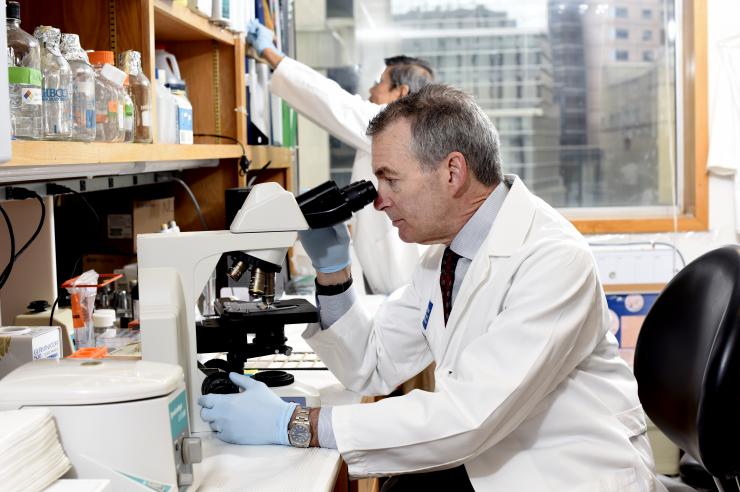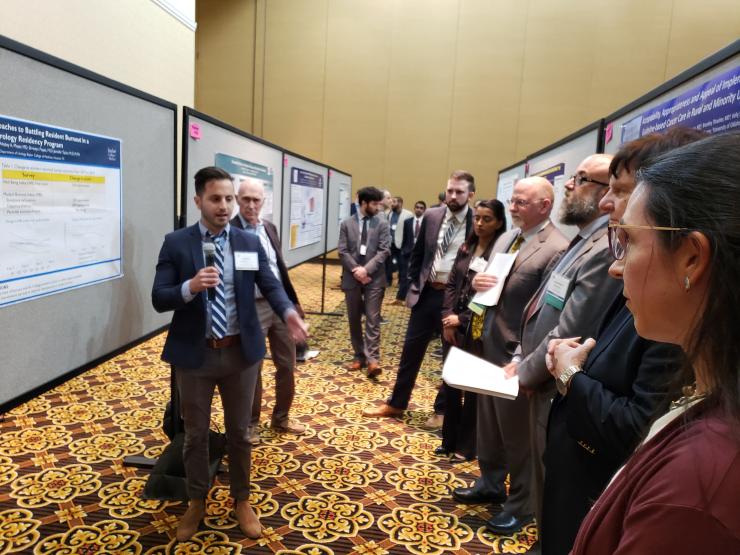
Research is a critical component of the urologic training experience at 7m╩ėŲĄ. Our department has teaching faculty with national and international reputations in a wide array of clinical, translational, and basic science areas of interest, including but not limited to bladder cancer, renal cancer, urologic trauma, stone disease, menŌĆÖs health, and education and wellness. Texas ChildrenŌĆÖs Hospital, an internationally-recognized pediatric hospital, likewise offers an abundance of research opportunities. Residents are encouraged to participate in research activities at the very earliest stages in their training, and some even foster collaborations within and between our department and others. We provide access to a dedicated statistician as well for meetings around project design and statistical analysis, and residents have participated in local clinical research, LEAN process improvement, and statistics workshops during training, supported by the program.
The six-month PGY-3 Flexible, Research, and Elective (FRE) rotation is a particularly productive time for residents. With reduced clinical responsibilities (mainly developing competence in laparoscopic and robotic cases), the rotation affords significant time to pursue scholarly activities. Residents become involved with a variety of scholarly pursuits ranging from clinical research to medical device innovation to basic science experiences. The program has supported resident applications to the prestigious AUA Residency Research Award Program, and one resident was awarded and applied this grant in the 2022-2023 academic year.
The three-month PGY2 rotation Andrology & Endoscopy similarly affords additional time for early project development, wherein the resident is not embedded in a hospital service and covers ambulatory clinic and surgical cases primarily. He or she has regular mentoring meetings and is tasked with developing a proposal (research project, QI project, and the like) which can be further defined in the interim and then provide actionable items during the PGY3 FRE rotation.

Productivity is showcased during attendance at regional and national meetings. Many of our residents attend and present at the South Central AUA and national AUA meeting annually. Residents have also been able to attend other national meetings such as SUFU, SUO, and AACR to present their work. We additionally encourage active involvement in the Society for Women in Urology and support a large contingency at this important conference annually.
Our program encourages a collaborative approach to research, with faculty, senior, and junior residents working together to develop and answer clinically relevant questions. Given BaylorŌĆÖs unique position in the largest medical center in the world, residents have also collaborated with faculty at surrounding institutions, including Houston Methodist Hospital and MD Anderson Cancer Center.
In summary, our program aims to equip each of our trainees with ample opportunity to accrue experience, publications, and skills required of all urologists to practice lifelong learning. Through these endeavors, we promote the development of both academically-inclined or fellowship-bound urologists, as well as critically-thinking private urologists, practicing with the newest clinical understanding.




